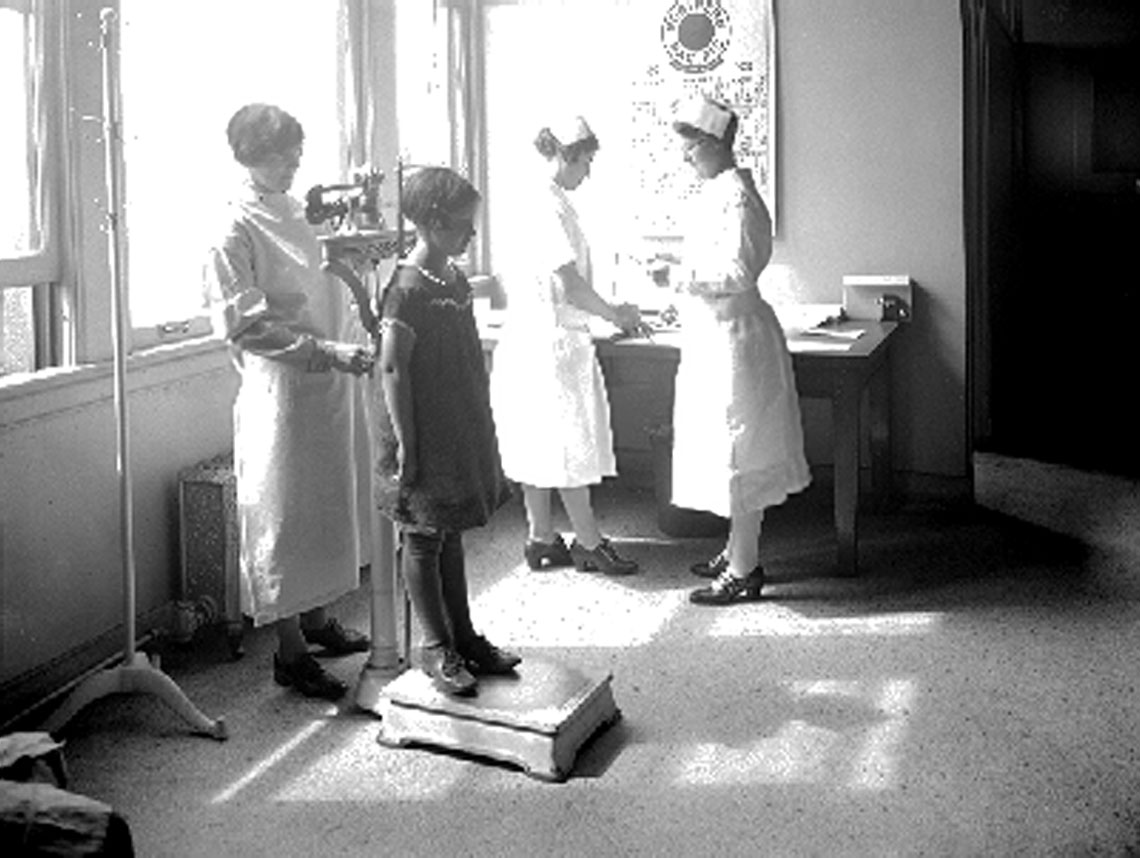Clara Barton is known as America's "Angel of the Battlefield." While nursing during the Civil War, Barton was deeply affected by the lack of medical supplies available to the wounded soldiers. Barton took action and took medical supplies to the battlefield, nursing the wounded where they lay. Barton also founded the American Red Cross in 1881 and led the organization until 1904.
A nurse advocating for the starving, Claire Bertschinger not only worked in Ethiopia during the 1980s, but she was also the inspiration behind Bob Geldof's Band-Aid single that raised money to feed the impoverished nation, "Do They Know It's Christmas?" Bertschinger has also worked in Lebanon, Panama, and Papua New Guinea. She penned "Moving Mountains" about her fight against world hunger.
Florence Guinness Blake was a 20th century nurse who fought for better training programs throughout the U.S. She wanted to elevate nursing to new professional heights, particularly when it came to pediatric nursing. Blake dedicated her career to pediatric nursing, including teaching methodologies still used today and writing a book entitled "The Child, His Parents and the Nurse."
Mary Breckinridge became an RN in 1910 and introduced nurse-midwifery to the United States after spending time in France after World War I with the American Committee for Devastated France. Breckinridge founded the Frontier Nursing Service in 1925, providing prenatal and postnatal nurse-midwifery care to women in Kentucky's far-removed Appalachian Mountains.
Dorothea Dix spent 40 years of her life lobbying for mental health care. In 1861, Dix became the superintendent of femalenurses for the Union Army and oversaw a staff of 6,000 hospital nurses. Dix founded 32 mental health institutions throughout her career to facilitate the nation's growing need for better mental health care. She also tirelessly campaigned for the rights of mentally ill people.
The first African-American woman to become a registered nurse, Mary Eliza Mahoney was one of four to graduate from the New England Hospital for Women and Children's nursing program in 1879. Mahoney's success as a nurse allowed more African-American students into nursing schools throughout the nation, and she co-founded the National Association of Colored Graduate Nurses in 1908.
Florence Nightingale certainly holds the honor of being the most famous nurse on our list. She became a nurse in 1851 and traveled to Turkey to aid British soldiers during the Crimean War. Devastated by the poor conditions of both the facilities and the soldiers, Nightingale took action, tending to the soldiers and cleaning up the hospitals. Many survived because of Nightingale's proactive approach.
Linda Richards developed the record-keeping that the U.S. and U.K. still use in nursing today after finding herself stunned by the disorganized records she found at her first nursing job. Richards was the superintendent at the Boston Training School for Nurses beginning in 1874, started the American Society of Superintendents of Training Schools, and led the Philadelphia Visiting Nurses Society.
Ahead of her time, Margaret Sanger witnessed many deaths resulting from botched abortions while nursing in New York City's Lower East Side. Sanger defied the authorities and opened a birth control clinic in Brooklyn in 1916. She founded the American Birth Control League in 1942, which eventually became the Planned Parenthood Foundation, and she helped the development of the first birth control pill.
MabGet All Your State Nursing CEUs for One Low Price of $39
Much like Mary Eliza Mahoney, Mabel Keaton Staupers fiercely advocated for racial equality in nursing. She served as a secretary to Mahoney's NACGN and brought African-American nurses into the armed forces during World War II. In fact, in 1945, Staupers won a battle against the military that led to race no longer playing a role in nurses being accepted into the military.




